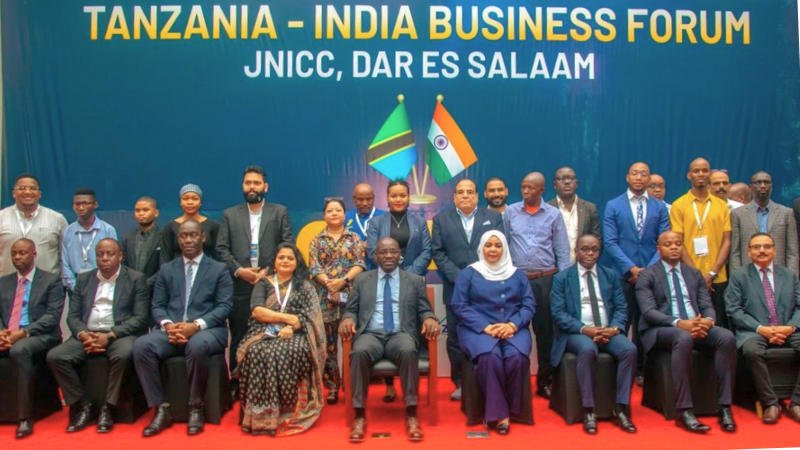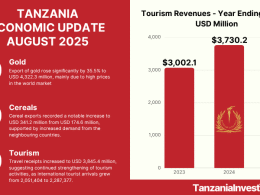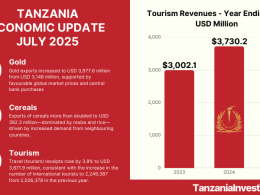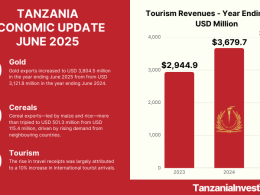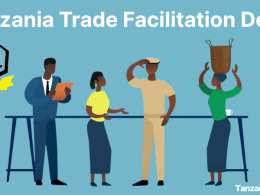The Tanzania–India Business Forum 2025 took place from 13 to 20 July in Dar es Salaam and Zanzibar, aiming to expand bilateral trade to USD 10B in the 2025/2026 fiscal year and attract new investments from India in pharmaceuticals, agro-processing, ICT, and industrial manufacturing.
The forum was co-organized by the Tanzania Investment and Special Economic Zones Authority (TISEZA) and the Ministry of Foreign Affairs and East African Cooperation, and brought together over 100 Tanzanian business leaders and more than 40 Indian companies, including a 60-member delegation from the Indian state of Haryana.
As part of the programme, delegates toured strategic locations including the Kwala Inland Container Depot, the Modern Industrial Park, and the Tanzania Agricultural Research Institute (TARI), to explore potential investment areas in logistics, agriculture, and industrial development.
During the forum, Deputy Minister for Industry and Trade Exaud Kigahe announced that trade between Tanzania and India reached USD 7 billion in 2024/2025 and outlined the government’s goal to increase it to USD 10 billion, equivalent to approximately TZS 26 trillion, in the next fiscal year.
To achieve this, Tanzania is prioritizing value addition and public-private partnerships (PPPS) across sectors with high potential, especially in agro-processing, pharmaceuticals, and manufacturing of equipment and ICT solutions.
Mr. Kigahe highlighted that Indian companies are already engaged in 713 projects in Tanzania, valued at USD 4.2B and employing over 6,000 people.
He also pointed to the government’s removal of 378 nuisance taxes and the creation of TISEZA as key reforms to streamline investment and reduce bureaucracy.
“We are committed to ending the export of raw agricultural goods and building strong value chains through joint manufacturing ventures,” he said.
Tanzania’s High Commissioner to India, H.E. Anisa Mbega, noted that 85% of Tanzania’s pharmaceuticals and 60% of its medical equipment are imported, with India being the main source.
She called on Indian pharmaceutical companies to invest in Tanzania to support the country’s ambition of becoming a regional hub for healthcare and medical tourism.
TISEZA Acting Director General George Mukono underscored the potential for joint ventures in agro-processing, renewable energy, ICT, automotive components, and healthcare.
He highlighted the role of Tanzania’s special economic zones—located in Dar es Salaam, Bagamoyo, Dodoma, and Mwanza—in attracting Indian investors aiming to access broader East and Southern African markets.
India is one of Tanzania’s top five trading partners and investors. Bilateral trade is largely driven by Tanzanian exports of cashew nuts and minerals, such as gold, while imports from India include pharmaceuticals, vehicles, machinery, ICT solutions, and medical equipment.





